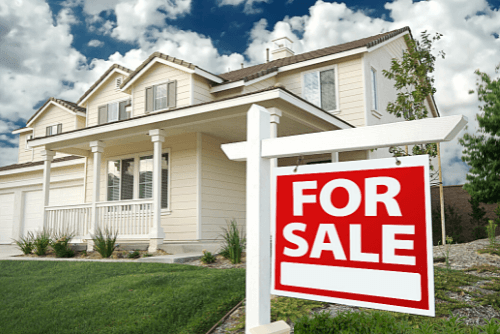Selling a home can often be a confusing, stressful process. Legal jargon and selling costs can make it challenging and time-intensive for the average seller. And, mistakes made during this process can eat away at your hard work. The good news is, you can avoid these costly pitfalls so that it goes as smoothly as possible.
Unaware of Various Costs
Underestimating selling costs is one of the most common mistakes sellers make. Selling costs such as commission fees, home inspections, repairs, and staging are typical parts of the process. You’ll want to calculate all those costs when researching the right price for your home. Although an extra cost, hiring a certified real estate agent to help you through the process can yield a higher return on investment vs. selling your home on your own.
Not Fixing Up Your Home Before Selling
You want to give your property the best chance on the market. Your home will lose value if there are significant issues that haven’t been addressed. Investing in repairs will help increase its value. Failing to address or even trying to hide any problems can result in disastrous consequences. If you can’t invest in repairs, be upfront and transparent about any damages or issues.
If you’re simply thinking of selling down the road, start repairs and upgrades now. Check out our article on Home Renovations That Return The Most At Resale.
Neglecting to Stage Your Home
Although staging your home may seem like additional, unnecessary costs, it tends to pay off. Staging your home will help you create an excellent first impression. Staged homes help potential buyers envision themselves living there, which can speed up the selling process. The return on investment from staging your home is typically too good to pass up. The cost of staging an average home is typically 1% of the sale price but can lead to considerable gains. A 2020 study conducted by the Real Estate Staging Association revealed that 3 out of 4 buyers saw about a 5 – 15% return over the asking price. Additionally, neglecting to stage your home could have adverse effects. Buyers may be less likely to want to tour your home, decreasing competitiveness.
Not Keeping Buyers in Mind
Selling a home is very similar to working in the customer service industry. To generate awareness of your product, you’ll need to keep buyers’ wants, needs, and schedules in mind. Professional staging, photography, and carefully crafted marketing materials all help you capture buyers’ attention. Offering open houses and private tours at different times accommodates their busy schedules. Having important information about your home readily available builds confidence and increases buyers’ interest in your home.
Not Carrying Proper Insurance
It is crucial to carry the proper homeowner’s insurance. Insurance can cover you if any accidents happen during a home tour or inspection. It’s essential to confirm that your policy extends beyond the period of moving out of the home to ensure protection. Additionally, taking steps to safety proof your home during open houses will help prevent potential issues.
Not Choosing the Best Offer
Choosing the best offer doesn’t necessarily mean selecting the biggest payout. It’s important to work with your agent to understand the full terms of the sale. Contingencies and whether the terms align with your needs should be made clear upfront. Additionally, you’ll want to vet all buyers as well. Typically, competitive buyers will get pre-approved to ensure they can purchase the home. Discuss closing costs, expectations, a proposed timeline, and deadlines to ensure you choose the best offer.
 Facebook
Facebook
 X
X
 Pinterest
Pinterest
 Copy Link
Copy Link
